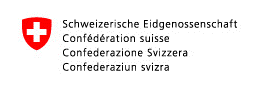
BERN, Switzerland, African Press Organization (APO)/ — Little progress has been achieved by the delegates from over 190 countries during the first week of negotiations at the United Nations Climate Change Conference in Durban, South Africa. The Kyoto states, the USA, the newly industrialised countries and the developing countries have become entrenched in their positions.
As expected, difficulties were encountered during the first week of negotiations at the UN climate change conference in Durban. “Positions have become entrenched since the last preparatory conference in Panama in the autumn,” says Franz Perrez, leader of the Swiss negotiating delegation. It is currently impossible to identify any common ground between the industrialised countries, the USA, the newly industrialised countries and the developing countries.
The main issue to be resolved by the negotiations, which began on Monday, 28 November, is how the future global climate regime can be organised and, specifically, whether and under what conditions the Kyoto Protocol can be continued. and an agreement established that legally binds all of the major emitters of greenhouse gases to cut their emissions. Switzerland will implement the emissions reduction measures specified in the ongoing revision of its CO2 Act. Nevertheless, in accordance with the Federal Council mandate for the climate change conference in Durban, Switzerland’s support for the extension of the Kyoto Protocol is contingent on the participation of the other industrialised countries, including the USA, and the newly industrialised countries of China, Brazil and India.
Switzerland also supports the implementation of the Green Climate Fund, the establishment of which was decided in Copenhagen. This forms part of the financial commitments entered into, which will total USD 100 billion of public and private funds from 2020 and are intended to guarantee finance for the reduction of greenhouse gas emissions, climate change adaptation and technology transfer. However, the negotiations on this issue are also proving difficult.
Doris Leuthard in Durban in the middle of the second week
The technical negotiations of the first week of the conference will be followed by the ministerial phase from the middle of the second week. Despite the difficult start to the negotiations, the ministers will try to resolve the outstanding issues and make decisions that will advance the international climate process. Switzerland will be represented at the ministerial phase of the conference by Doris Leuthard, Head of the Federal Department of the Environment, Transport, Energy and Communications (DETEC). Ms Leuthard will be in Durban on 7 and 8 December. Her agenda there includes bilateral ministerial meetings and an address to the plenary session on 8 December 2011.
Bruno Oberle, Director of the Federal Office for the Environment (FOEN), will participate in the second week of the conference at ministerial level. The Federal Council has conferred the title of State Secretary on him for the duration of the conference. Bruno Oberle will represent the interests of Switzerland until the end of the conference (planned for Saturday, 10 December 2011).
SOURCE
Switzerland – Ministry of Foreign Affairs
No comments:
Post a Comment